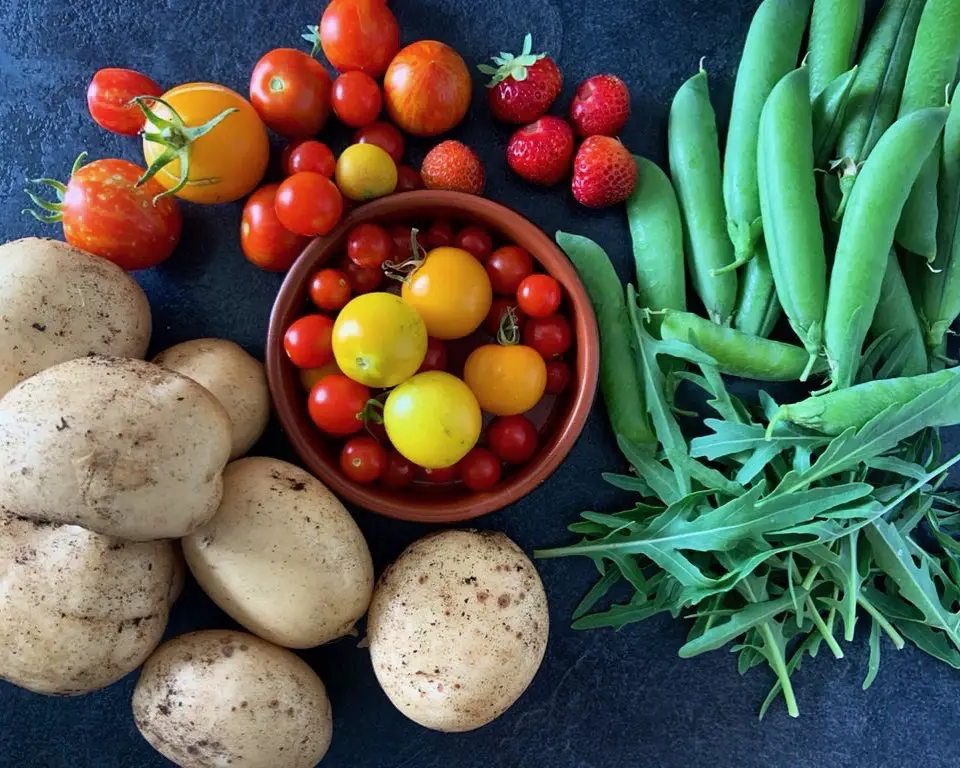
Let’s look at the facts:
I’ve spent some time reading around and if you want it, there is a whole world of information available on sustainability, organic farming and food waste and emissions. There are some astonishing facts and there is a lot of advice. Quite clearly, choosing to shop organic AND reducing your food waste are of equal importance for the future of this planet.
What’s totally and utterly shocking is the numbers surrounding food waste and its impact. It strikes me that whilst organic farming is of the utmost importance to our future, stopping food waste is something we can act on more quickly. And, if enough people get behind it, a wave of change could genuinely make a difference in the short to medium term.
I’d advocate buying organic when you can afford it but what we need is more farms to turn to sustainable farming practices in the first place. Sure, we can go around buying organic from our local delis and supermarkets but if only a certain percentage of the world’s farms use these techniques in the first place, our impact will always be limited.
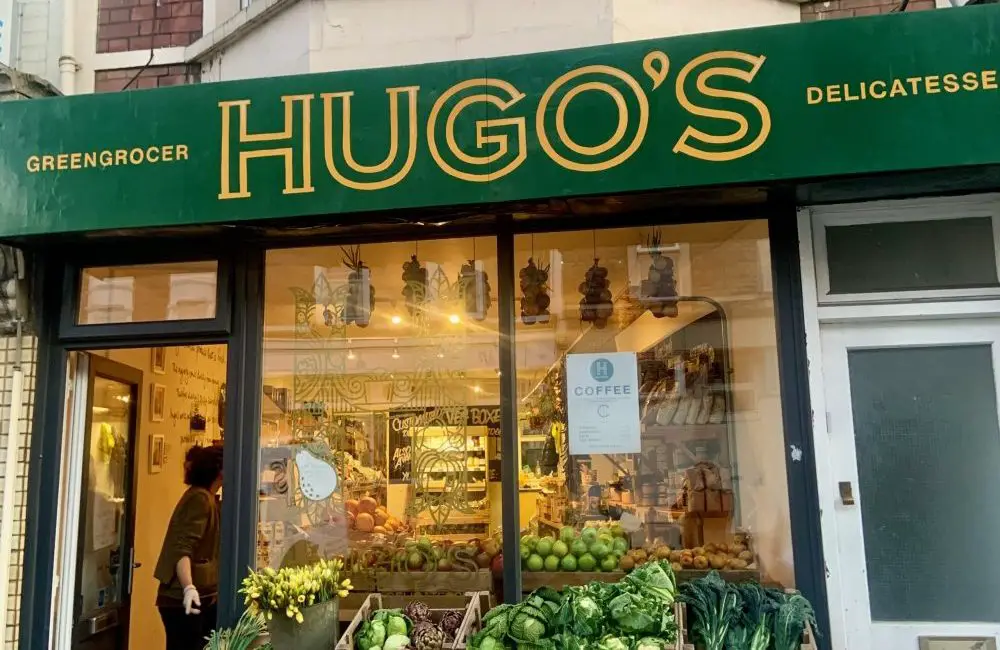
The UN environment programme food index report 2021 suggest that 8-10% of global greenhouse gas emissions are associated with food that is not consumed. I don’t know about you but that’s higher than I was expecting. That’s food which has been produced for but not eaten by humans.
Findings from the European Food Information Council are also shocking. Whilst agricultural production accounts for the highest level of food waste, when it comes to carbon footprint, its actually human consumption which causes the most damage. EUFIC is a not-for-profit organisation which looks to make the science behind food and health more accessible and easier to understand among the public. Their website is well worth a look as they have some excellent resources for further reading.
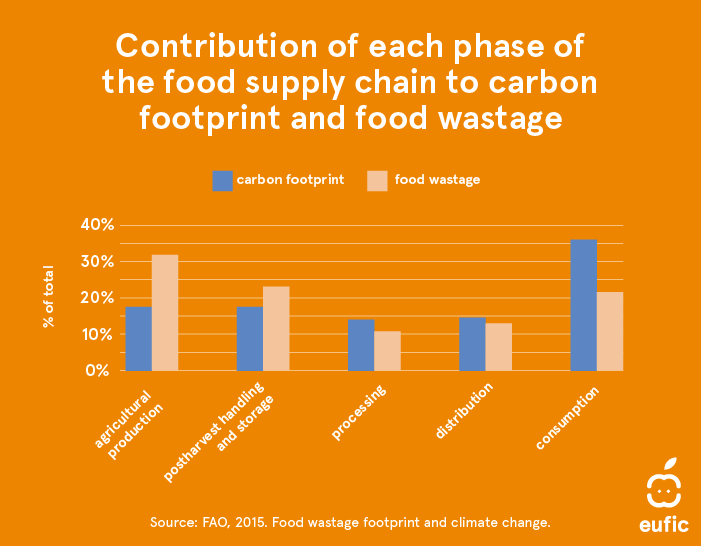
What do you think?
Last year I ran a series of quick polls on my twitter with the intention of sitting down and writing this very piece. Nine months later, it’s a grey miserable day and I’m on the sofa finally collating it all. I was interested to gauge what regular folks and home cooks (like me) think is more important—or easier—and so more likely to be something they’d stick to.
Let’s take a look at the poll and its results:
What do you do with vegetables at home when they’re past their best?
On a regular basis, Dave rolls his eyes at me when I tell him how old the vegetables were that formed part of his evening meal. I have a real thing about it – I’ll cook a bendy carrot, scrape a bit of mould of this and chop bad bits off that. Turning veg is nearly always salvageable with things like soups, curries and stews. I’m pleased to see the vast majority of pollsters do the same, although with 118 people voting on this poll, that still means 12-13 are putting old veg straight into the bin. And that’s from an audience of conscious food lovers. I imagine the figure would be higher in the general population.

Hungry City Hippy agrees with me on the bendy carrots front saying “Chuck in a soup/stew, no one will know the difference. I eat the bendiest carrots” and John Arnold says “I try to chop and freeze any veg I’m not going to get round to using in time. It’s very handy to have pre-chopped veg around for quick cooking. The rest is composted”. It seems a lot of you compost too, which is always great to hear. We have three compost bins; a hot bin, a regular compost heap and a worm bin. And they only get what doesn’t go to the chickens! Smug gold stars for this household!
View this post on Instagram
What about reduced price food?
As one of the 5 people out of 66 who answered ‘I never buy it’, Lisa said that when it comes to reduced price food “I try not to buy it as I know others need it more than I do”. This prompted a few others (including myself) to say they’d never thought about it that way. I’m torn on this one.
On the one hand, I agree that there needs to be more affordable food available to low income shoppers but on the other, I don’t think leaving reduced items for them is the answer. There is a bigger debate to be had around fresh, healthy and affordable food and I’d love to hear from you in the comments on this. Reduced food is one step removed from the bin. By saving it from landfill where it’ll slowly rot and contribute to our carbon emissions, I say grab it and use it.
Which is more important for the planet? And why?

Kavey said “surely reducing wastage [is most important]. Producing so much that isn’t even needed/used is craziness!” and Grab Your Spoon agreed, saying “Not so much reducing food waste as preventing over production in first place”. My concern here is that until over production is addressed, waste food will continue. So my question is this – as consumers, how do we address the over production? I found a couple of American articles on this subject but annoyingly, my google searches just kept surfacing articles on how to reduce food waste at home, not at source.
Finally, I whole heartedly agree with this comment from Team Not Leafy: “A real toughie! Reducing waste’s crucial but opting for organic planet-wise, as a) yields less than conventional industrial farming, so cuts potential waste in theory, & b) reduces antibiotic & chemical use (synthetic herbi -pesticides etc.), less into soil, water courses & humans.”
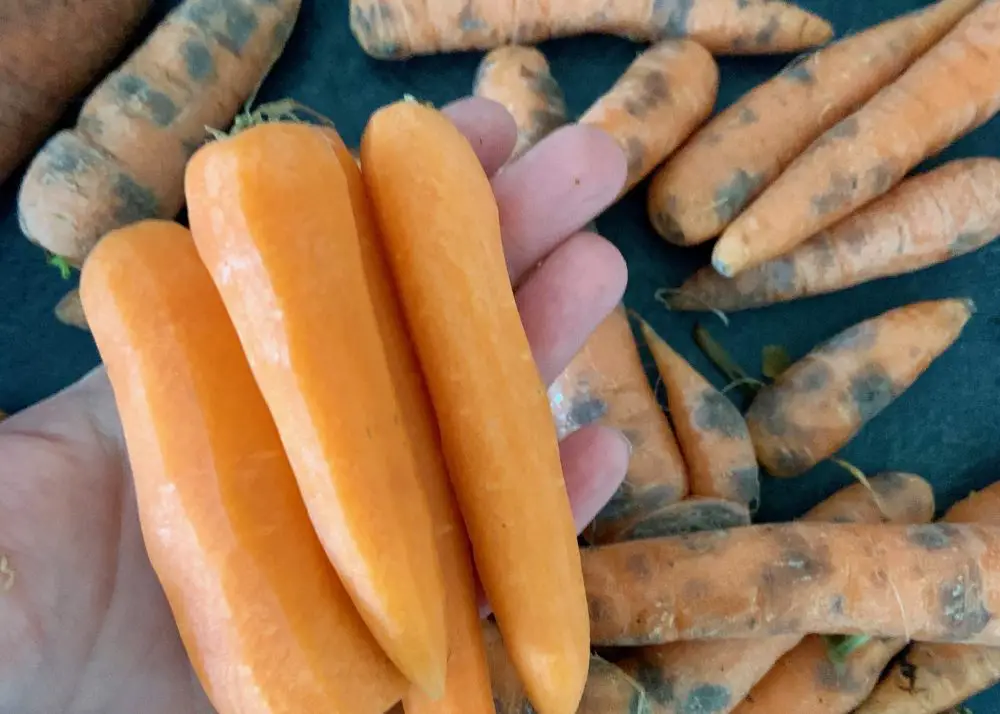
In conclusion:
I have no idea! I cannot work it out. Clearly, there is more appetite to and a lot of information available on the reduction of food waste at home but the benefits organic farming bring to our planet are ten fold, albeit longer term. From a consumer point of view, we can only buy organic produce from where it’s already available. And in 2020, that was just 2.8% the total farmed area on agricultural holdings in the United Kingdom*. Until the government steps up subsidies and offers more support to farms wanting to convert, the choice will always be limited – a choice for those of us who can afford it, not an option for the masses.
There was talk of this on a global scale at COP26 which is outlined in this Soil Association summary but whether the support will follow… well time will tell.
We’ll continue to buy organic where we can but I appreciate that not everyone can afford to. And don’t get me wrong, we don’t buy everything organic. As a minimum though, we buy organic milk, dairy and vegetables via Riverford and Milk and More. We have our own chickens who eat organic feed but if we need to buy eggs, those are organic too. When it comes to meat, it really depends on what we can afford at that time – there’s no denying it’s more expensive. As a minimum, we go for free range.
Reducing food waste at home is easier than you think. Most councils have food caddies now as part of their collection services so if you don’t have the option to compost at home, they can take it away for you. I’d recommend though, rather than trying to work out how to discard of waste food, take a step back and avoid it in the first place. Write a meal plan, shop local, shop small and often (again, where you can) and get creative with what you have in the cupboards before doing a food shop. Little consistent changes will make a difference.
Further reading / listening:
- *DEFRA Organic farming statistics United Kingdom 2020
- My blog post on making the move to buying organic
- I have two episodes on my podcast, at the sauce, which cover organic farming. The first, with Tim Mead of Yeo Valley and the second with Hugh Padfield, CEO of Bath Soft Cheese. Both provide insight into the world (and benefits) of commercial organic farming and are worth a listen.
- Top reasons to support organic from Organic.org
- It all adds up by Love Food Hate Waste- the financial benefits of stopping food waste
- My blog on using your freezer to avoid food waste
- Via the Guardian, a UN report in March 2021 showed that people waste almost 1bn tonnes of food a year.

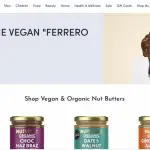
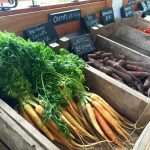
Thanks for this excellent piece – so many great points raised! I think you are right in that there is no absolute right or wrong answer, but right here right now reducing food waste is a contribution we can all make TODAY whereas buying organic to drive demand to increase the number of organic producers is a very long, slow game and not a change that individuals can effect by themselves- whereas every single one of us can effect change by reducing our food waste. Very few veg or fruit in my house get consumed before their best before date and i love me a reduced bag of veg 😁
Great post! Very well written. Thanks for sharing the useful blog.
Both are important. Much farming as it is currently done is unsustainable. The soil is being wrecked and the impact is now. It’s unrealistic to expect farmers to all change to organic methods but they can all significantly reduce reliance on agrochemicals. I prefer to buy organic, but it is expensive. I’ve also been growing more of my own veggies and fruit, too, even though my garden is small. No pesticides and only peat free compost, which is soon going to be the only compost available in garden centres. One thing I’ve been doing when buying meat is keeping in mind eating nose-to-tail. It can be cheaper. And quite delicious. I think, as you and others have said, we do need to produce less, and individually it makes sense to not buy too much in the first place.